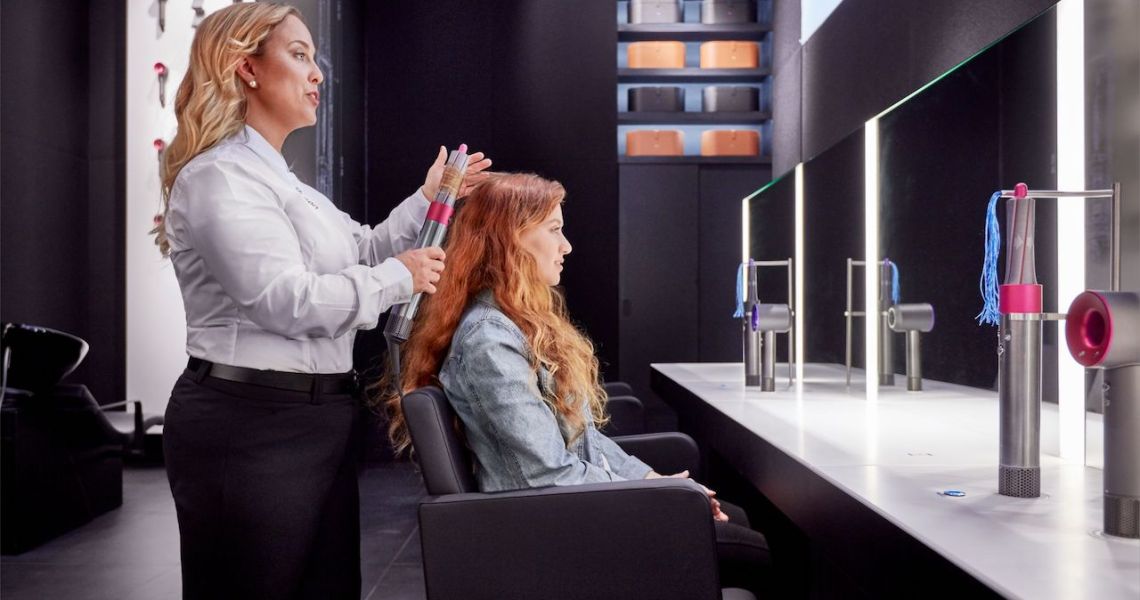Dyson has been quiet on the beauty front since launching its Supersonic blow dryer in 2016 and its Airwrap curling iron in 2018. However, the segment has very much been on the minds of the company’s talent.
At the end of October, Dyson unveiled its Dyson Demo Store Beauty Lab in Seoul. Unlike traditional Dyson Demo Stores (of which the company has 150-plus locations) that include hair styling appointments and opportunities for prospective customers to try the Supersonic and Airwrap products, the Korea experiment is meant to serve as a research lab for Dyson’s engineering and technology teams. For instance, through Dyson’s Scanning Electron Microscope (SEM) and Hair Mapping Analysis, engineers are able to evaluate a consumer’s hair condition, provide personalized recommendations to shoppers and then use the data for future product development.
“As we continue to rapidly build our expertise in hair science, we are passionate about sharing this knowledge,” said Paul Dawson, vice president of health and beauty at Dyson. “By introducing the scanning techniques used by engineers in our research and development labs, we will be able to furnish the public with a better understanding of their own hair. It puts our hair science expertise and hair care technology at the core.”
Though unusual for a company to put its engineering teams front-and-center with consumers, rather than sales associates, Sam Bernard, Dyson global category director for personal care, said doing so is vital for Dyson’s success in the beauty category.
“We approach our products and hair science differently from how a lot of other companies would, largely because we don’t have any background in the beauty industry,” said Bernard. He admitted early versions of the Supersonic blow dryer looked more like a “power tool that you would find in a garage than a hair salon.”
The lab component, only available in Seoul for now, is also meant to educate consumers about Dyson’s technology and illuminate why products are priced the way they are. (Retail prices for the Supersonic blowdryer start at $399.99, while the Airwrap curling iron begins at $499.99.) Bernard said it was a matter of months before Dyson debuted the lab capabilities to the public and that the company expects to roll out parts of the Korean Demo Store to other Dyson locations like Los Angeles, which opened on November 6.
Though Korea is not Dyson’s top-selling country, the Asia-Pacific region is its fastest-growing. It saw 24% year-over-year growth in 2018, according to Dyson. In January, Dyson reported it had reached $1.4 billion in revenue in 2018, up 33% from 2017.
“Korea is interesting because of how consumers use permanent treatments, like chemically curling, straightening or coloring their hair. It’s a much higher proportion of women that do this than in the U.K., so its a great test bed for our engineers to see what those needs are first-hand and ask difficult questions,” said Bernard.
The company has yet to make updates to its existing two beauty products or to launch a third hair tool, despite customer demand. But Bernard hinted that more is indeed coming from Dyson beauty in 2020.
“We hold back until we can make products that we are proud of. We won’t try to take something and make it just a little bit better,” said Bernard. “It’s very easy to add things on to a product, but that doesn’t necessarily add any particular real value. We have nothing but ambition in beauty, and we only want to make the best of the best.”




